Topic – Earning Revenue
Post Reading Time – 13 Minutes
Blogging has become an extremely powerful way to earn an income online, but many people struggle to figure out how to initially make it work. If you’ve been wondering how to turn your blog into a way to earn money, you’re in the right place. Yes, writing good and helpful content is important, but what really makes a blog profitable are the tactics that happen behind the scenes. Let’s look at some proven ways to monetize your blog and start seeing the results you’re looking for.
How To Monetize Your Blog
Some of the proven ways to monetize your blog include affiliate marketing, advertising, and selling your own products or services. You need to concentrate on creating high quality content that connects with your audience and builds trust with them.
Place ads where they fit naturally with your content, promote affiliate products that meet with your readers’ needs, and consider offering them items like guides, courses, or consulting services. These methods can turn your blog into an income source while reinforcing its value to your audience.
See Your Full Blog Monetization Checklist Here!
What You’ll Learn From This Post
- How To Create High Quality Content – Learn how to create valuable and engaging content that builds trust with your audience and follows the E-E-A-T guidelines.
- Affiliate Marketing Basics – Find out how to partner up with companies, promote relevant products, and earn commissions by using affiliate links naturally in your content.
- Advertising Strategies That Work – See how to choose and use advertising methods like CPC, CPM, and CPA without disrupting your readers’ experience.
- Selling Your Own Products Or Services – Learn how to develop and sell items like e-books, merchandise, or consulting services that meet with your audience’s needs.
- Understanding Analytics For Better Results – See how to use analytics to identify your best performing content and improve your strategy for more engagement and income.

Start Your Training
- Build Your Website & Earn Revenue
- Support, Tools & Training Included
- Complete with Business HUB
- Artificial Intelligence Writers
- My Personal Support
- No Risk Free Starter Account
Building a successful blog takes dedication and a good understanding of how to turn your words into an income.
Turning a simple blog into a profitable one takes time, effort, and the use of some good tactics. When these are done right, your blog can become a reliable source of income for you.
Before we get into the monetization strategies, it’s important to focus on the basics that will help your blog grow and succeed.
To have a successful blog, you need to be providing your readers with good value. If you share content that really helps your audience, you will build trust and credibility. This trust is what makes all monetization feel natural, as readers see your blog as a reliable source they can turn to.
To build consistent income, you need to gain your audience’s trust, show your expertise, and provide value they don’t want to ignore.
After building trust with your audience, the next step is to create content that connects with them while also generating an income. It needs some careful planning to get it right., but it can be done if you concentrate on your goals.

How To Create Content That Helps Monetize Your Blog
The content that you have on your blog plays a big role in whether it becomes profitable or not. High quality, engaging posts should grab your readers’ attention, keep them interested, and encourage them to read through and take action.
Apart from your content being well written, It should also show your expertise, authority, and trustworthiness (E-E-A-T). For me and my blogs and websites, I just try to concentrate on sharing accurate information that’s reliable and presented honestly.
When readers trust your content, they’re more likely to stay and read, return again later for more, and even take actions like clicking affiliate links or buying products.
Just focus on your niche. By understanding your audience, their interests, questions, and needs, you can create posts that connect with them. This connection makes them more likely to take action and helps you build a following.
Your content should keep readers engaged and make them want to return again. Concentrate on offering them something valuable in every post, so your audience feels their time was worth it.
Always check your Analytics too. They will show which posts perform best, who’s reading your content, and how they’re finding it. I use this data all the time to understand what works best and make improvements, helping my posts to reach more readers and perform well in the search engine results.

Affiliate Marketing – A Proven Way To Monetize Your Blog
Affiliate marketing is one of the easiest ways to earn money from your blog. It’s a relatively simple setup, you partner up with companies to promote their products or services and earn a commission for every sale or action through your personal affiliate link.
Here’s how to make affiliate marketing work well for your blog:
Start by choosing affiliate programs that meet with your blog’s focus and your audience’s interests. Make sure you offer quality, as it’s not the amount of content you write that matters, it’s how good it is.
With that in mind, avoid filling your pages with irrelevant links. Instead, promote products you trust and know will genuinely help your readers.
It also matters how you place these links in your content. They should feel like a natural part of the conversation, not something that interrupts the reading experience. Tutorials, product reviews, and comparisons are good ways to include affiliate links without making them feel forced in.
Honesty is important when promoting affiliate products. Be upfront about your affiliate relationships. This transparency is a legal requirement and it also helps build trust with your audience, which is required for your success.
Affiliate marketing will work best when you focus on quality. Recommend products that make sense for your audience, but don’t overdo it. Too many links or promotions will make your readers feel pushed.
You can also look into using ads to earn from your traffic without always needing to promote specific products.

Advertising Strategies To Monetize Your Blog
Just throwing different ads at your readers and hoping they’ll click on them is never a good idea. To make advertising work well, you need to understand the different options available out there, like Cost Per Click (CPC), Cost Per Mille (CPM), and Cost Per Action (CPA).
Each of these has its own advantages, and they work best for specific types of content and audiences.
The first step to take is to choose an advertising network.
Google AdSense is a popular option for many people because it’s easy to use and has a wide reach. But there are plenty of other networks that are suited to specific niches and offer different rates and engagement models.
Just remember that your readers come to your blog for the content, so it’s important to find that balance between monetizing your posts with ads and keeping their reading experience enjoyable.
Too many ads can ruin your content, making visitors leave and not come back. Instead, try to aim for a level where the ads increase your earnings without driving your traffic away.
The placement of your ads is just as important as the number of ads you have. Place ads in a way that fits naturally with your site’s design, and complements your content, rather than disrupting the user experience.
For example, a banner ad at the top of your page or a sidebar ad that matches the content being viewed can work well.
Once you’ve figured out your ad placement, you can move on to selling your own products and services. By applying the same principles of careful placement and relevance, you can offer your audience a smooth experience while showing them what you’ve created.

Products And Services To Monetize Your Blog
Your blog can be much more than a place to just share your thoughts. It can be used as a platform where you can sell products or services that add even more value for your audience.
Once you’ve built trust and loyalty with your readers, they might be interested in other things rather than just the content which you share.
Digital Products
Things like e-books, templates, or online courses can be a good addition on what your blog already offers. These products will let you share your expertise and solve problems for your readers in a practical way.
The important thing is to try and provide something that’s unique and worth the price.
E-Commerce
Adding e-commerce features to your blog will allow you to sell physical products or branded merchandise.
Again, think about items that fit your niche and that appeal to your readers. It could be tools, accessories, or custom products. They can be a good way to increase your blog’s value. Just keep everything relevant!
Additional Earning Revenue Info & Resources
Personal Services
Consulting, coaching, or freelancing are also excellent ways to monetize your blog. These services rely on your knowledge and allow you to work directly with clients.
Be clear about the value you’re offering, set out your expectations early, and show your potential clients why they should choose you.
Your success with products or services depends on how well you guide your potential buyers through their decision making process. Clear calls to action, engaging content, and simple conversion tools can turn your readers into paying customers.
To make this move smooth, your products and services should connect naturally with your blog’s existing content. This way, you build on the trust and credibility you’ve already earned with your audience.
Your Blog Monetization Checklist

To help you make the most of your blog and start making an income, here’s a checklist you can follow.
| Content Quality and Engagement | Focus on creating high-quality, engaging, and valuable content that follows E-E-A-T principles (Expertise, Authoritativeness, Trustworthiness). Understand your blogging niche and your audience’s interests and needs to make your content connect with them. |
| Affiliate Marketing | Choose affiliate programs that fit with your blog’s focus and audience. Naturally include affiliate links in reviews, tutorials, or comparisons, and always disclose your affiliate relationships to maintain trust and transparency. |
| Advertising Strategies | Understand advertising models like CPC, CPM, and CPA, and pick networks that suit your blog, such as Google AdSense or niche-specific platforms. Place ads strategically to enhance your content without overwhelming your readers. |
| Creating Your Own Products and Services | Identify unique offerings like e-books, online courses, or templates that add value for your readers. Use e-commerce features to sell physical products or branded merchandise, and offer services like consulting, coaching, or freelancing. Make the buying process simple by using clear instructions and tools that are easy for your readers to use. |
| Analytics and Strategy Updates | Use analytics to track how your audience engages with your content and measure performance. Adjust your strategy based on the data to boost engagement and earnings. Stay flexible and adapt to new trends in blogging and monetization. |
| Building Trust and Authority | Consistently provide value to your readers to build trust and credibility. Engage with them through comments and social media to foster a loyal community. Be transparent in all your monetization efforts to ensure long-term trust and success. |
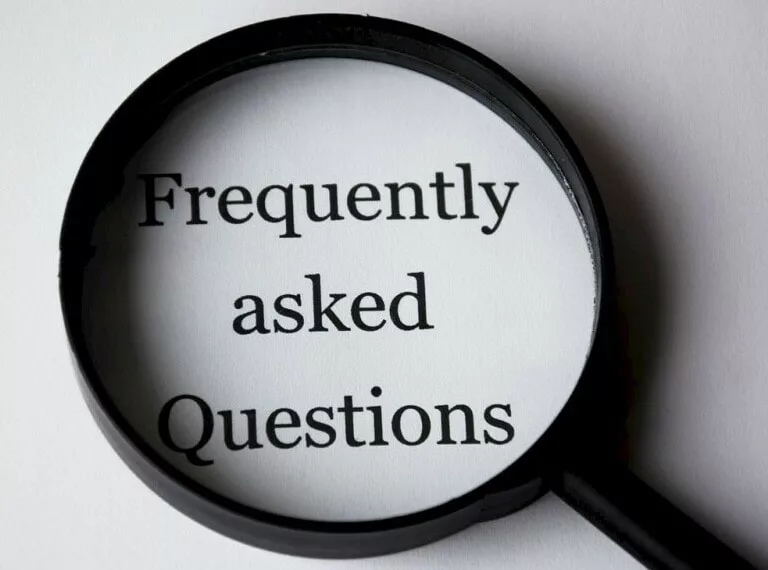
Frequently Asked Questions – FAQs
How can I start making money from my blog?
To start making money from your blog, concentrate on creating high quality content that engages your audience. Partner with companies in your niche through affiliate marketing, and strategically place ads on your site. As your audience grows, you can also sell your own products or services.
What is affiliate marketing and how does it work?
Affiliate marketing involves promoting products or services for companies and earning a commission for every sale or action made through your affiliate links. Integrate these links naturally into your content, such as in reviews, tutorials, or product comparisons, to match your audience’s interests.
What types of advertising strategies can I use on my blog?
Common strategies include Cost Per Click (CPC), Cost Per Mille (CPM), and Cost Per Action (CPA). Choose an advertising network like Google AdSense or niche specific platforms, and make sure that the ads are placed thoughtfully to complement your content without being too much for your readers.
How do I create my own products or services to sell on my blog?
Start by identifying what fits with your blog’s focus and your audience’s needs. Create digital products like e-books, templates, or courses, or incorporate e-commerce features to sell physical products. Services like consulting or coaching are also good options.
How important is it to use analytics for my blog’s growth?
Analytics are very important for tracking content performance and understanding your audience. Use analytics to identify your popular posts and adjust your strategy to improve engagement and monetization. This helps you make data driven decisions over time.

Turn Your Blog Into An Income Generating Business
You’ve now gone through how to monetize your blog and take it to the next level. You’re now able to turn your blog from a personal project into an income generating business.
Remember, the growth of your blog depends on you creating quality content, building strong relationships with your audience, and staying open to learning and improving.
The tools and tactics we’ve covered here are the stepping stones to your success, but it’s important to know that doing your monetization needs to be ongoing. Things are always changing, and your strategies need to keep up with these changes.
Stay connected with your readers, pay attention to what they want, and make the changes when necessary.
My Experience with Monetization and Why I Avoid Ads Now
Quite a few years ago, on one of my websites, I made the mistake of focusing too much on the dollar signs. I had a good website with some nice content on it, but I took advice to monetize it using Google AdSense. At first, I was happy to see a few dollars come into my account each day. But over time, I noticed my traffic starting to dwindle, and my bounce rates creeping up.
I can’t say for sure, but I believe these ads were a major factor for this. There were just too many of them, and it started to affect the reader experience. I realized in the end that monetizing through ads wasn’t worth sacrificing the quality of my site.
These days, I don’t use ads on any of my sites. Instead, I just concentrate on providing value to my audience first. I believe that building a good connection with my readers is far more valuable than relying on ads to earn a few dollars here and there.
I hope this post on the proven ways to monetize your blog has helped you out so you can take those first steps.
Start by looking at what you’re offering and how it meets with your goals for monetization.
Then set your objectives and create a plan to reach them.
Thank you and please leave your thoughts and comments below.
Chris
Wealthy Affiliate
This is where my journey into the online world began, and it’s still the only community I trust for genuine, high quality guidance on building a business and earning money online.
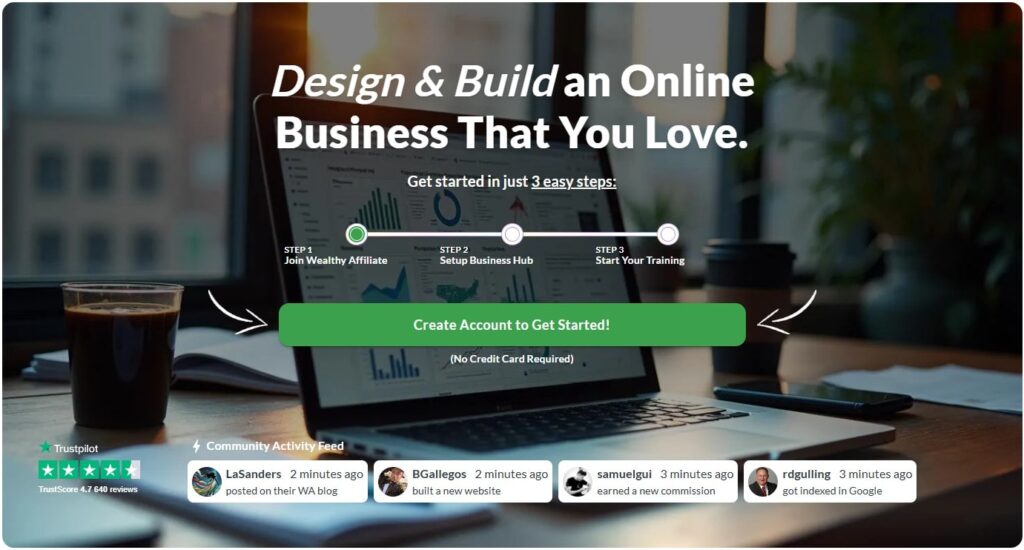
The Wealthy Affiliate platform offers everything you need – training, hosting, tools, resources, and live assistance – all in one place.
If you’re ready to start your online business, this is the perfect place to begin.
I highly recommend Wealthy Affiliate for its unmatched support and resources.
About Chris Towers – Follow Me

My name is Chris Towers, and I’m here to help you make sense of affiliate marketing and build an online income. Through years of experience, I’ve learned what works, and I want to share those lessons here to help you succeed.
Related
- Do You Need Luck To Be Successful Online? Here’s The Truth!
- Legitimate Online Jobs You Can Do From Home
- What Is The Difference Between An Active And A Passive Income?
- How To Make Money Advertising On Your Website For Real Results
- How To Make A Passive Income Online For Beginners
- Proven Ways To Monetize Your Blog And Improve Your Income
Just to be open with you – My site includes links that are part of affiliate programs. If you click on these links and buy something, I might get a small commission. There’s no additional cost for you whatsoever. It’s a simple way to support the content I create for you. I hope you are OK with this & thank you for your understanding.
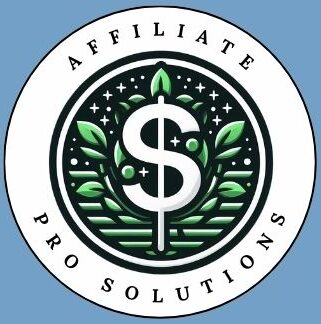



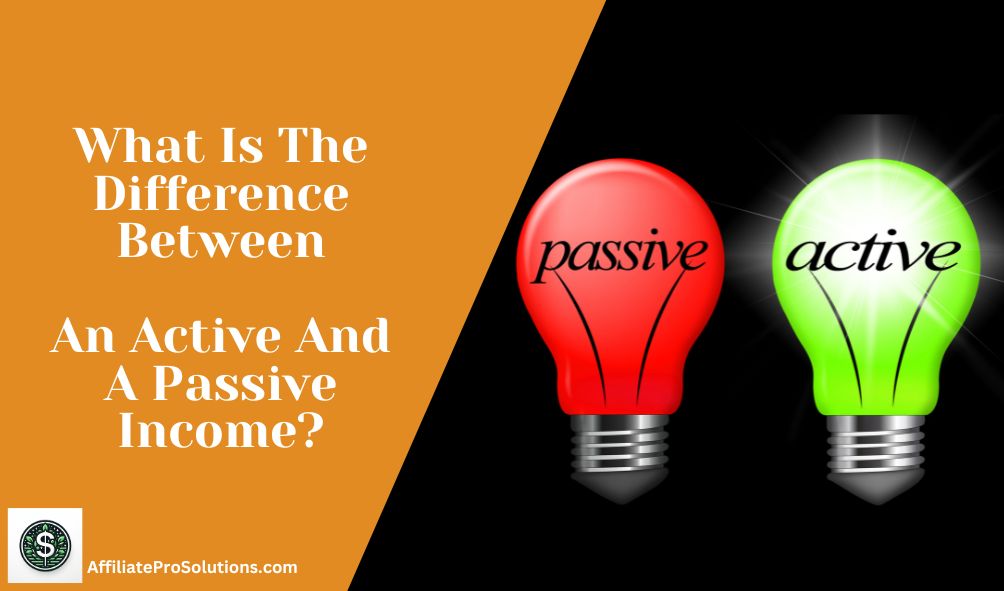

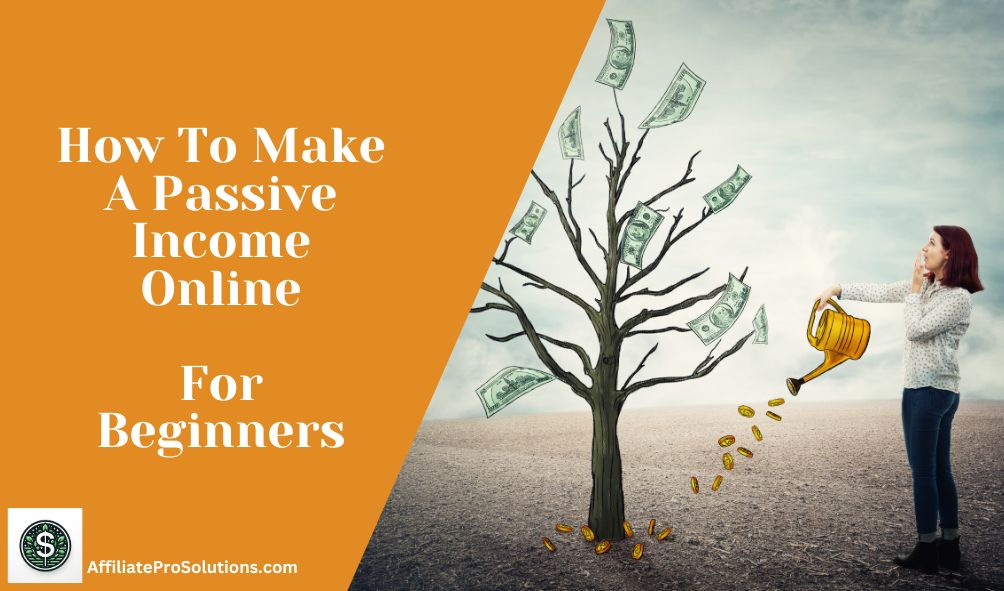
Hi Chris,
Thanks for sharing this guide on monetizing a blog. You’ve put a lot of effort into explaining these strategies for bloggers to generate income.
I appreciate your information on creating high-quality, engaging content in order to build a strong foundation of trust and authority. It’s a very important step before diving into monetization techniques.
Your overview of options like affiliate marketing, advertising, and creating products/services is excellent. I especially liked your advice on selecting affiliate programs that fit your niche and placing ads without overwhelming readers.
Striking the right balance between providing value and generating revenue is key.
The tips on using analytics to understand your audience and adjusting content strategies are also really welcomed here. Staying updated with trends and being adaptable is vital for long-term success.
Thank you for sharing your knowledge and experiences. The checklist at the end is a great summary of the main points. Kudos on creating such an informative resource!
Best,
Eric
Hi Eric and thanks for reaching out! I’m happy you found the guide helpful.
Building a strong foundation with high quality content is definitely important, and it does take time to gain trust and authority.
Balancing monetization strategies like affiliate marketing and ads while providing value is so crucial here. I’m happy to hear you appreciated the tips on analytics and adapting to trends too.
Thanks for the kudos and for engaging with the content. If you have any questions or want to discuss further, feel free to reach out!
Best Wishes
Chris
Hello. I think you did an awesome job here. I agree with what you’re saying too, I think if a person has passion for their niche that they can be successful with an online business. The opportunity is huge. You just have to be persistent and consistent. It’s not easy or fast success. but it can give you a great business long-term if you stick it out.
Thank you so much for your getting in touch and I’m really glad you enjoyed the post.
It is quite true, passion and persistence are key in this journey. It’s definitely not an overnight success, but with dedication and consistent effort, the opportunities are really huge.
It’s also very inspiring to see how many people have built successful long term businesses by sticking it out.
Keep pushing forward, and best of luck with your own online efforts!
Chris